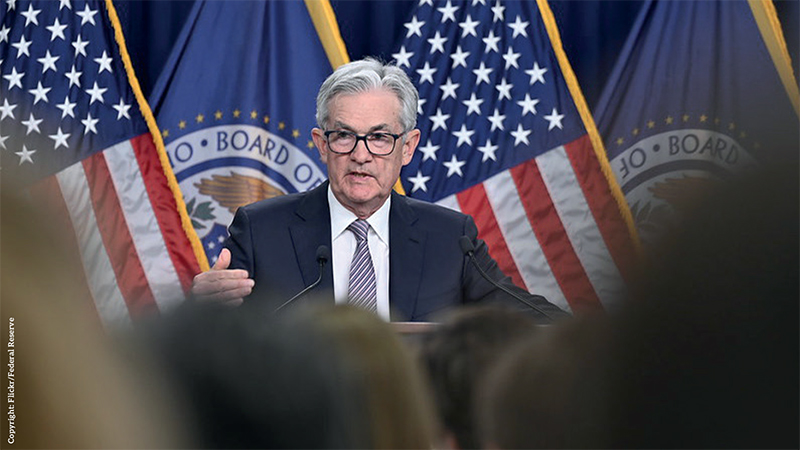Financial markets are on a knife-edge as we hit the middle of the week after US President Donald Trump revealed his proposed tariffs on goods coming into the US.
Major stockmarket indices, including the S&P 500, Nasdaq 100 and FTSE 100, have seen dramatic swings. Stocks have surged at signs of some softening of the US position or openness to negotiations, and slumped back down suddenly when the hopes appeared to be false.
Asian markets such as China and Japan have been particularly badly hit, given the amount of exports they sell to US consumers.
The bond market is also embroiled in the volatility, with Treasury yields now spiking after falling initially. The yield on the 30-year climbed above 5% overnight. Speculation is mounting that Federal Reserve chair Jerome Powell (pictured) will be compelled to take some action to calm the situation.
See also: SJP’s Justin Onuekwusi: Why now is the time to revisit portfolio resilience
“Yesterday’s fragile recovery in stocks has been shattered by renewed selling as reciprocal tariffs on what the Trump administration regards as the ‘worst offenders’ comes into effect,” said AJ Bell investment director Russ Mould.
“Investors had initially taken some positives from a willingness in the White House to negotiate with Japan and Israel but an escalation with China triggered another sell-off on financial markets. US consumers buy a lot of goods from China, so the 104% tariff could stoke inflation big time.
“Investors are looking for any indication that the US government might blink in the face of the turmoil. For now, there are no signs of a willingness to back down or hit pause on tariffs,” Mould continued. “The longer the situation persists, the harder and more complex it will be to unpick”
“A trend which will be watched closely is an apparent loss, whether temporary or otherwise, of US assets’ safe-haven status. Treasuries sold off heavily amid some speculation China and other parties are dumping their holdings as a retaliatory tool. The dollar also remains under the cosh.”
Martin Connaghan, co-manager of Murray International Trust PLC, said: “The human element to market volatility always results in sentiment swinging wildly from one extreme to the other based on emotion.
See also: In a volatile world, diversification must go beyond 60/40
“The reality is often somewhere in the middle. Are there some very good companies in China? Yes. Are some of the magnificent seven still very good businesses? Yes. Do either of the prior two statements change if said markets or stocks go up or down 10%? Probably not.
“We will certainly be looking to take advantage of what has happened during the last week,” he continued. “Does that automatically mean the US weight in the portfolio will be going up? No, not necessarily. We will be looking at stocks within the US alongside all the other markets.”








